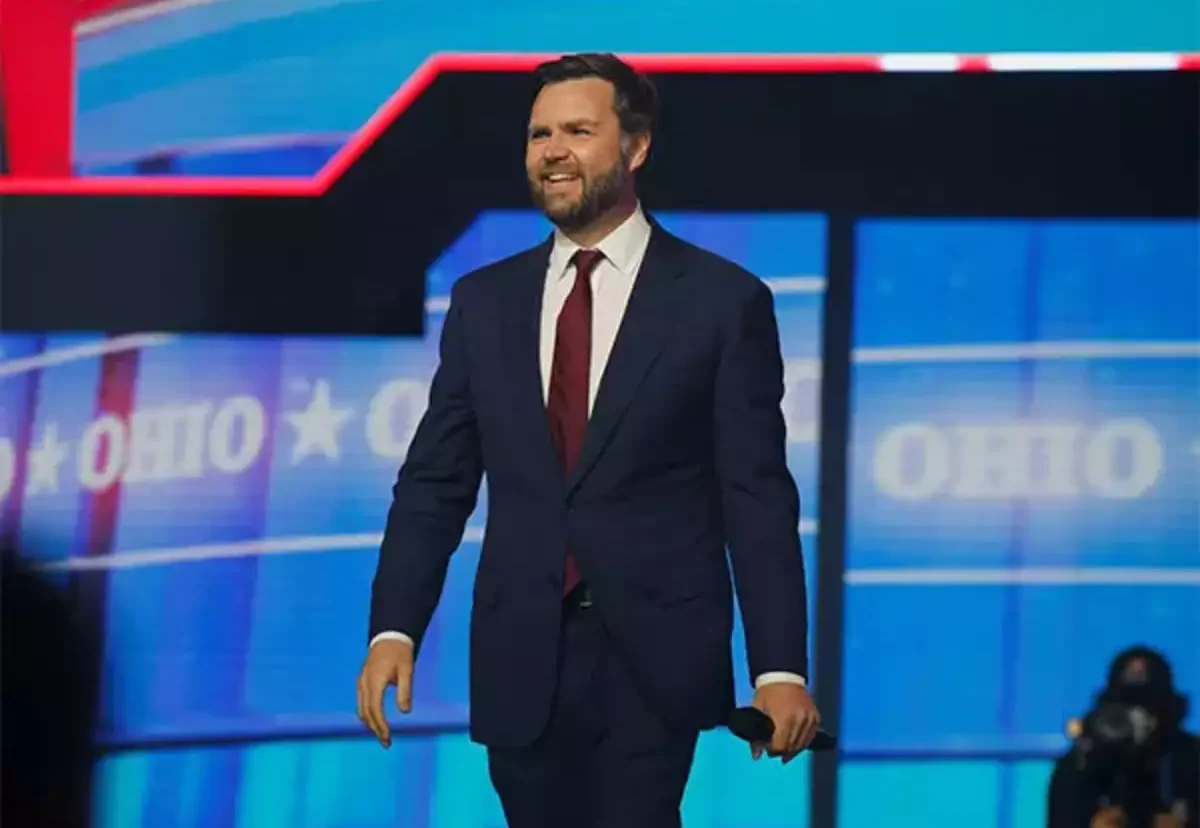Donald Trump’s pick for running mate, J.D. Vance, made controversial comments suggesting that Britain has become an “Islamist country” under Labour and could be the first truly Islamist nation to obtain a nuclear weapon.
Vance, a 39-year-old senator from Ohio, made these remarks during a dinner at the National Conservatism Conference in Washington on July 10. He shared a conversation about nuclear proliferation, expressing that while Iran and Pakistan are often considered candidates, the UK might be the first Islamist country with a nuclear arsenal following Labour’s recent success.
In his speech, Vance also criticized the Biden administration’s stance on nuclear proliferation and discussed the broader threat to American democracy. He suggested that the threat comes not from Trump but from a disconnect between voters’ desire for less immigration and politicians’ actions.

J.D. Vance
Vance highlighted the UK’s situation, claiming that continuous immigration has not resulted in economic prosperity or lower housing prices, using his observations from a recent trip to London as evidence.
Angela Rayner, the UK’s deputy prime minister, responded to Vance’s remarks by noting his history of making provocative statements and rejecting his characterization of Labour. She emphasized Labour’s success across diverse communities and expressed a willingness to meet Vance if Trump wins the upcoming election.
Shadow Veterans Minister Andrew Bowie and junior Treasury minister James Murray also dismissed Vance’s claims, with Bowie calling them offensive and Murray emphasizing Britain’s pride in its diversity.
David Lammy, the foreign secretary, who has frequently visited the US, mentioned Vance as a “friend” in a video from a recent trip to Washington. The video, which shows Lammy and Vance embracing, contrasts with the strong reactions from other UK officials, reflecting the complex dynamics of international political relationships and the varied receptions to Vance’s comments.
Vance’s speech and the subsequent responses highlight the tensions and differing perspectives on immigration, diversity, and political leadership between the US and UK. His remarks have stirred debate and drawn significant criticism from UK politicians, illustrating the sensitive nature of such issues in both countries.
